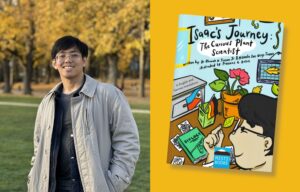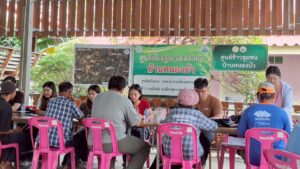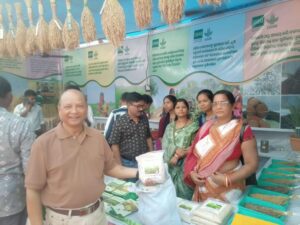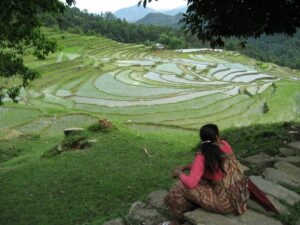
Long ago, when the world was new and peaceful, trees grew tall and strong, flowers bloomed, oceans and swift rivers rippled under sunny skies, and animals roamed in abundance. All people were hunters and gatherers. They moved from place to place, living under leafy shelters or in dry caves. Food was easily available. Fish were easy to catch, fruits and tubers were plentiful, and they could always trap an animal to roast.
Makisig and Liwayway lived happily. Life, like the world around them, seemed idyllic. Being newly married, they wanted time to be alone, so they moved their camp away from the clan and closer to the sea.
Late one afternoon, Makisig returned from collecting shellfish from the rocks near the shore.
“Liwayway, I like this place,” he said.
“Me, too!” Liwayway replied, taking the laden basket from him.
The setting sun caught the crests of the waves and turned them from golden orange, then red, until the sun disappeared below the horizon of the South China Sea. The fragrant warmth of the night enveloped the contented couple.

Liwayway soon became pregnant. They were both delighted and they decided to stay in their own place, where Makisig cut bamboo to build a stronger shelter.
But then, the expected rains did not come. The sun continued to shine every day, the soil dried and cracked, the leaves on the trees turned brown and fell, and animals left in search of food.
Makisig had to walk farther each day searching for something to fill their food basket. He knew good food was important for his wife and their coming child. Sometimes, he ate only a few berries, saving the more succulent ones for Liwayway.
One hot afternoon, Makisig trudged a long way. He found nothing to eat. He searched in a small valley, but found nothing. He trudged on up a steep hill to find only yellowing grass. Exhausted, he lay down under a small scrubby tree.
He lay with his eyes closed, tired, worried, but enjoying the respite from walking. After a while, a light cooling breeze fanned him. Feeling refreshed, he opened his eyes.
“I must be dreaming,” he thought, “the grass is dancing.”
He shut his eyes and rested again. Then he heard sounds like music. The dry grass rustled rhythmically, and seemed to say, “Makisig, we want to help. We have something for you. Pick our grains. We are good food and delicious.”
Makisig peered through half-opened eyes, then looked again more closely. He stared in disbelief. The grass was bowed down with grains. He struggled to his feet and picked a drooping stalk.
“Smells good!” he said aloud.
The breeze rustled the grass again, and seemed to say, “Pound the grains lightly with a stone to remove the golden brown husk. Boil the pearly white parts. The grains are good.”

Makisig doubted that this dry hard grain could taste good. But, his basket was still empty, so he filled it with heads of this grass and set off home.
“We can only try,” he thought.
As he reached their bamboo shelter, he worried.
“Did I imagine it all?” But, his basket was full, so he told Liwayway the whole story. They removed the husks, and the white grains were soon bubbling in a clay pot over a fire.
What the grasses told Makisig was true. The hard grains softened, and also became much larger. They put the hot grains on banana leaves to cool, added a few small fish, and sat down to a feast. “Mmm, delicious!” said Liwayway. ”And how good to feel full,” murmured Makisig. They slept well that night.
Makisig returned the next day to cut as much grain as he could carry. The wind whispered again. “Plant the best grains in the valley, in muddy soil. If it doesn’t rain, carry water from the river. The plants will grow lush and green and will give you more grains—plenty for you and Liwayway, and for the new child. In time, there will be enough to share with your clan. Call the grains palay!”
Makisig and Liwayway never went hungry again, nor did their clan. Soon, all were growing this wonder grain.
__________________________________________________
Ms. Flinn-Stilwell is a writer based in Hobart, Australia. This story is part of her forthcoming book, Rice–a grain with many stories, a collection of 28 legends about rice and the many customs associated with this amazing grain.










